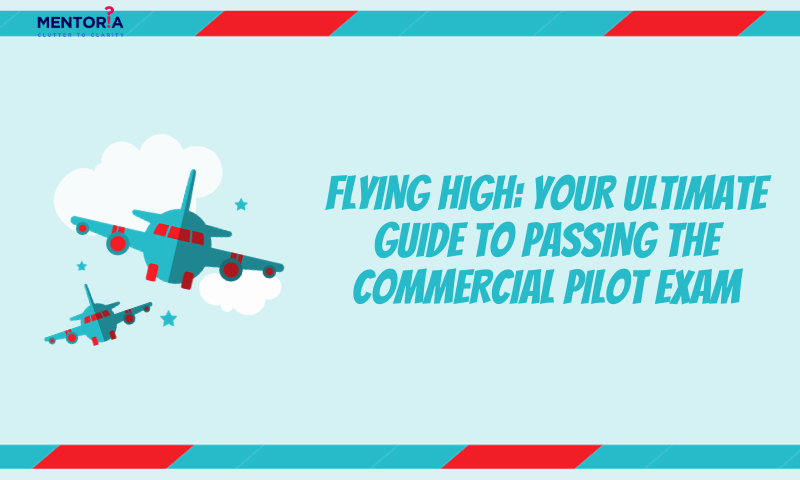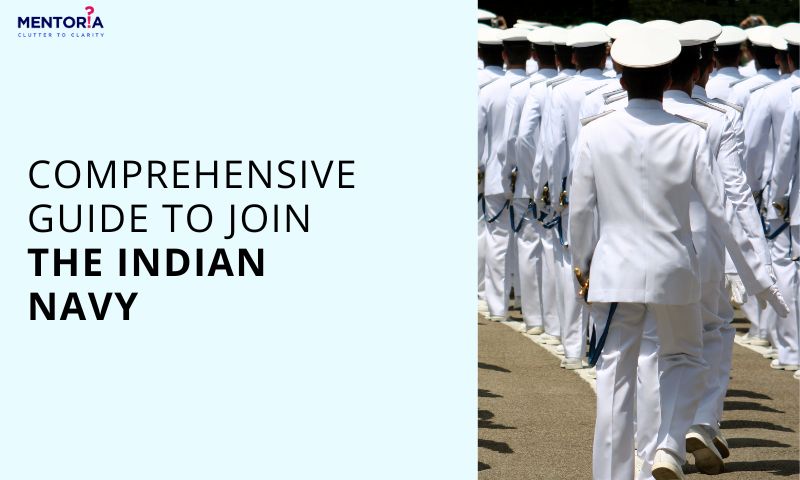Flying High: Your Ultimate Guide To Passing The Commercial Pilot Exam

Setting your sights on becoming a commercial pilot? Buckle up, because you’re about to take flight on an exhilarating journey towards achieving your wings! The world of aviation awaits your expertise and skill, and the first step is passing your commercial pilot exam. Don’t worry; it’s not as daunting as it may seem. Think of it as a thrilling adventure where the sky’s the limit, and success is your co-pilot. In this blog, we’ll guide you through a turbulence-free route, offering tips and tricks that’ll have you soaring through the exam with confidence. Get ready to navigate your way to the cockpit and unlock the skies above!
Understanding The Commercial Pilot Exam
Before we delve into our tips, let’s grasp the essentials. The commercial pilot exam is the gateway to a career where the sky is not the limit. It’s the final step in your training, granting you the authority to operate an aircraft for compensation or hire. The exam typically comprises two parts: a written knowledge test and a practical checkride. Now, let’s break down the critical areas and tips for each stage of your journey:
The Written Knowledge Test
Understanding The DGCA Commercial Pilot Exam
Before we delve into the nitty-gritty of acing the exam, let’s get acquainted with what you’ll be facing. The DGCA Commercial Pilot Exam consists of multiple papers that cover various aspects of aviation knowledge and skills. These papers include:
- Air Navigation: This paper evaluates your understanding of navigation, which is crucial for safe and accurate flight. You’ll need to master topics like aeronautical charts, compass errors, and celestial navigation.
- Air Meteorology: Weather plays a pivotal role in aviation safety. In this paper, you’ll be tested on your knowledge of weather systems, interpretation of weather reports, and understanding turbulence.
- Air Regulations: To ensure safe operations in the aviation industry, you must be well-versed in air regulations. This paper covers rules, regulations, and legal aspects of aviation.
- Technical General: Here, you’ll dive into the technical aspects of aircraft and aviation. Topics include aircraft systems, engines, and aerodynamics.
- Technical Specific: This paper delves deeper into the technical knowledge required for your specific aircraft type. If you’re aiming to become a commercial pilot for a particular aircraft, this is where you’ll need to shine.
- Radio Telephony: Effective communication is a must for a pilot. You’ll be tested on your ability to communicate clearly and efficiently using radio telephony.
The Ground School Preparation
The written knowledge test is the first hurdle you’ll face. It assesses your understanding of aviation theory, regulations, and procedures. To prepare effectively:
- Study, Study, Study: Invest in high-quality study materials, such as textbooks, online courses, and practice exams. The more you immerse yourself in the material, the better prepared you’ll be.
- Stay Organised: Create a study schedule that covers all the required subjects, from aerodynamics to navigation. This helps you allocate sufficient time to each topic.
- Use Flashcards: Create flashcards to reinforce key concepts and definitions. They make memorisation easier and more engaging.
- Mock Exams: Take as many practice exams as possible. This simulates the exam environment and helps you gauge your readiness.
The Practical Checkride
Flight Training And Preparation
The practical checkride is the moment when you put your skills to the test. To prepare effectively:
- Practice: Log as many flight hours as possible. The more experience you gain, the more confident you’ll feel.
- Follow a Syllabus: Your flight school likely follows a structured syllabus. Stick to it, and ensure you cover all required manoeuvres and procedures.
- Mock Checkrides: Conduct mock checkrides with your instructor or fellow students. This simulates the real experience and helps you identify areas needing improvement.
- Cockpit Familiarity: Get comfortable with the aircraft you’ll be tested on. Familiarity with the cockpit is crucial for smooth operations.
The Checkride Day
As the day of your practical checkride approaches, here’s what you need to keep in mind:
- Pre-Flight Inspection: Conduct a thorough pre-flight inspection. This not only demonstrates your readiness but also ensures safety.
- Stay Calm: Nerves are natural, but try to stay calm and composed. Remember that your instructor has deemed you ready for this.
- Effective Communication: Communicate clearly with the examiner. If you’re unsure about something, it’s better to ask for clarification than to guess.
The Art Of Navigation
Navigation is a critical skill for a commercial pilot. Here are some tips to help you become a pro navigator:
- Master the Instruments: Familiarise yourself with the various navigation instruments in the cockpit, such as GPS, VOR, and ADF.
- Plan Your Routes: Always plan your routes in advance, considering weather, airspace restrictions, and alternate airports.
- Learn to Read Charts: Aeronautical charts are your best friends. Learn how to read them effectively to avoid getting lost.
- Stay Current: Navigation techniques and tools evolve. Stay up-to-date with the latest technology and procedures.
Weather Wisdom
Understanding weather patterns is vital for a commercial pilot. Here’s how to navigate this aspect:
- Meteorology Knowledge: Invest time in studying meteorology. Know how to interpret weather charts, forecasts, and radar images.
- Safety First: Never compromise safety for the sake of sticking to a schedule. If the weather is unfavourable, it’s better to delay or divert your flight.
- Consult Experts: Don’t hesitate to consult meteorologists or your airline’s dispatchers for weather-related guidance.
The Soft Skills
Being a commercial pilot is not just about flying the aircraft; it’s also about handling passengers and emergencies. Here’s what you need to know:
- Communication Skills: Develop excellent communication skills to interact with passengers, air traffic control, and your crew effectively.
- Crisis Management: Learn how to handle emergency situations calmly and efficiently. Simulated emergency drills during training can be immensely helpful.
- Teamwork: Collaboration is key. Develop the ability to work seamlessly with your co-pilot and cabin crew.
- Customer Service: Passengers’ comfort and satisfaction are paramount. Strive to provide excellent customer service.
Stay Healthy And Fit
A commercial pilot’s job demands physical and mental fitness. To ensure you’re in peak condition:
- Healthy Lifestyle: Maintain a healthy diet, get regular exercise, and get adequate sleep.
- Stress Management: Learn stress management techniques, as flying can be demanding at times.
- Regular Medical Check-ups: Schedule regular medical check-ups to ensure you’re fit to fly.
Mentoria: Your Co-Pilot To Success
In the world of aviation, success is not just about soaring through the skies; it’s about the knowledge, skills, and determination that lift you to new heights. As you embark on your journey to become a commercial pilot, remember that the path may have its challenges, but with the right guidance and a steadfast commitment to your dream, you can conquer them all.
At Mentoria, we understand the aspirations and challenges that aspiring pilots face. That’s why we’re here to be your co-pilot on this incredible journey. Our team of experienced aviation mentors and instructors is dedicated to helping you achieve your dream of becoming a commercial pilot. But it’s not just about passing exams; it’s about preparing you for a successful career in aviation. Our career counselling services will assist you in making informed decisions about your pilot career path, whether you’re aiming for an airline job, corporate aviation, or any other exciting aviation role.









